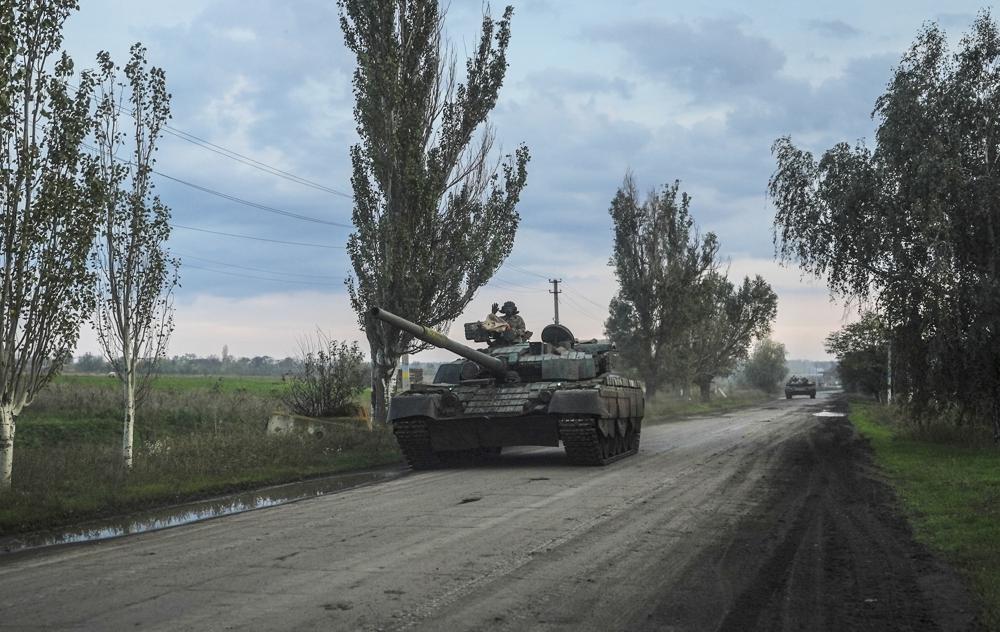

Russia attacked the Ukrainian president’s hometown and other targets with suicide drones on Sunday, and Ukraine took back full control of a strategic eastern city in a counteroffensive that has reshaped the war.
Russia’s loss of Lyman, which it had been using as a transport and logistics hub, is a new blow to the Kremlin as it seeks to escalate the war by illegally annexing four regions of Ukraine and heightening its threats to use nuclear force. Ukraine’s recent gains have embarrassed Russian President Vladimir Putin and prompted rare domestic criticism.
Ukrainian President Volodymyr Zelenskyy said Sunday his forces now control Lyman, after Russia’s military announced Saturday its retreat.
“As of 12:30 p.m. (0930 GMT) Lyman is cleared fully. Thank you to our militaries, our warriors,” Zelenskyy said in a video address.
In southern Ukraine, Zelenskyy’s hometown Krivyi Rih came under Russian attack by a suicide drone that struck a school early Sunday and destroyed two stories of it, said Valentyn Reznichenko, the governor of Ukraine’s Dnipropetrovsk region.
Russia in recent weeks has begun using Iranian-made suicide drones to attack targets in Ukraine. In southern Ukraine, the Ukrainian air force said Sunday it shot down five Iranian-made drones overnight, while two others made it through air defenses.